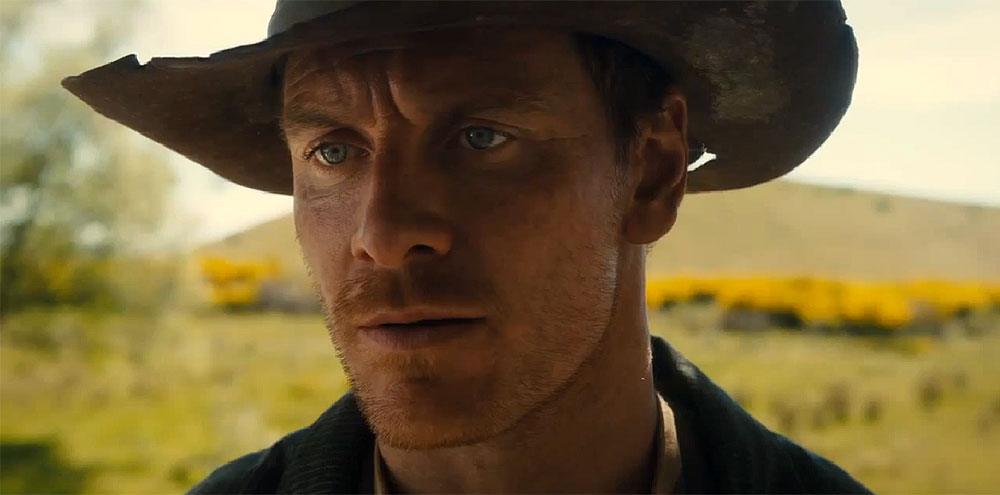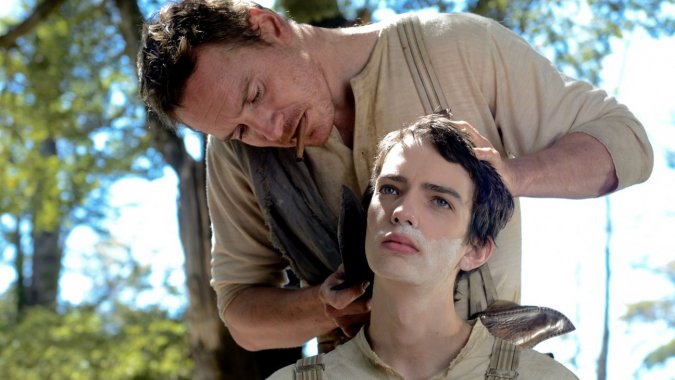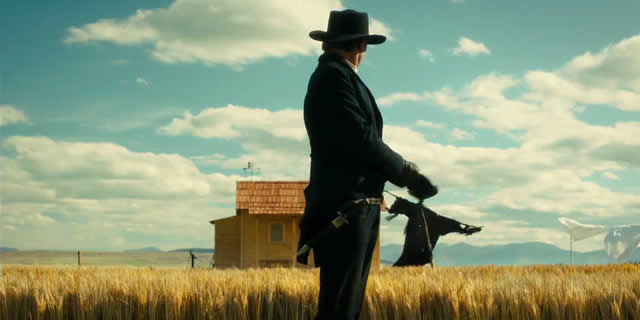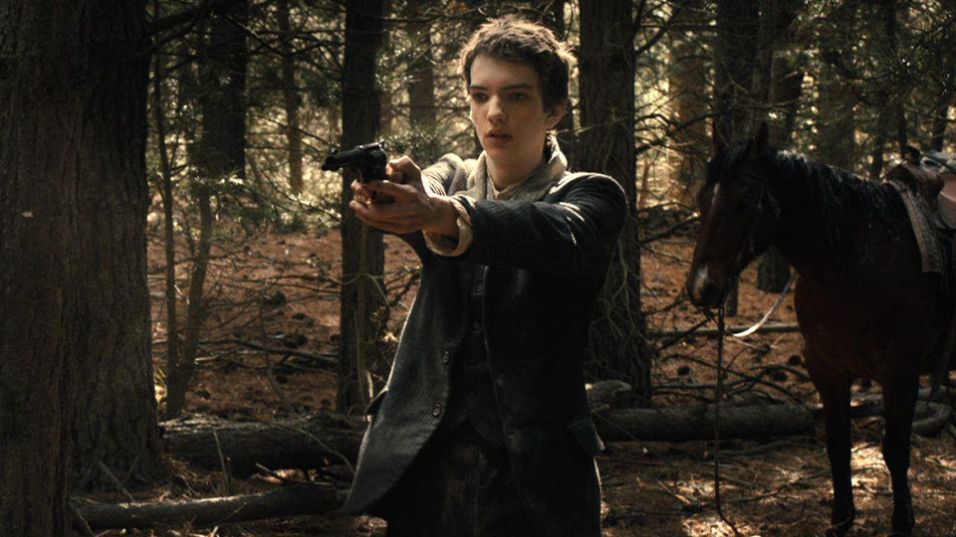 A24
A24Slow West is not really a Western. It's more of a romance, with tragic Shakespearean overtones. Jay (Kodi Smit-McPhee) is a 16-year-old Scotsman traveling solo across the American continent in search of his love, Rose (Caren Pistorius), who fled Scotland after—he tells a stranger—an accident occurred back in the home country that was his fault.
That stranger is Silas (Michael Fassbender), who also narrates the film, which turns out to be a sort of redemption story that starts with a good old-fashioned “once upon a time.” Silas is an outlaw—“there were few of us left, men beyond the law,” Silas tells us, in the twilight of the West—and his old gang catches up with him, including Payne (Ben Mendelsohn), who totes around absinthe and wears a fur coat.
As you might imagine, shoot-outs ensues. But true to its name, Slow West takes a long time to get there, and gives us achingly gorgeous vistas in the process, shot by Robbie Ryan, who has worked several times with British virtuosa Andrea Arnold. Interestingly, it's set mostly in New Zealand (one of its spiritual kin, John Hillcoat's The Proposition, was shot in Australia), though it works as a dreamscape dead ringer for the western United States.
 A24
A24Slow West won the Grand Jury Prize at Sundance this year. It's writer/director John Maclean's first feature, and despite its name, it is steady, but not crawling. It's in the family of Kelly Reichardt's Meek's Cutoff, which is to say that it sees the American West predominately as a dangerous place, rather than a heroic place. Maybe it takes an outsider to see it that way, given how firmly the mythos of the cowboy is embedded in the American imagination.
And yet Maclean succumbs to no easy stereotypes. The Americans who show up in this film are mostly outlaws, but there are lots of immigrants, too, who are sometimes good and sometimes not, who sing along the roadside and who pilfer and who quote poetry and philosophy and steal a man's livelihood out from under him. In many ways, this is an immigrant Western, with people from abroad who have come to share in the plenty, or hide from the law, or study a disappearing civilization—one apparently friendly anthropologist tells Jay that he is “recounting the decline of the aboriginal tribes . . . to prevent their extinction or conversion to Christianity.” (He's a bit of a rat, it turns out.)
 A24
A24Slow West also does a great job of portraying a West populated by the moderately educated people of the late nineteenth century—it talks about religion, evolution and origins, even existence in terms that don't quite fit the stereotype of the lone ranger or the hopeful pioneer. This West is a tough place, but a musical place—a brutal and beautiful place, a land where you can be lost and found again.
In that way, it's a deeply religious film, though organized religion is treated with the sort of skepticism you might expect from those who are fleeing civilized society for one reason or another. But it's said by the end that people can teach one another that “there is more to life than survival”—a distinctly anti-Darwinian sentiment, by the way—and with its gorgeous vistas and loving yet unsentimental look at humans, it's a triumphant first feature, and well worth a look.
 A24
A24Caveat Spectator
There's some big shoot-outs, and so there is gun violence, and the movie makes it clear that these are painful to the humans involved—which, I think, is one of the film's strengths: it doesn't valorize violence, but doesn't downplay how necessary its characters think it is. But it also means children are orphaned and there's a lot of blood. There's also a bit of profanity, as befits an outlaw on the American prairie.
Alissa Wilkinson is Christianity Today's chief film critic and an assistant professor of English and humanities at The King's College in New York City. She tweets @alissamarie.













